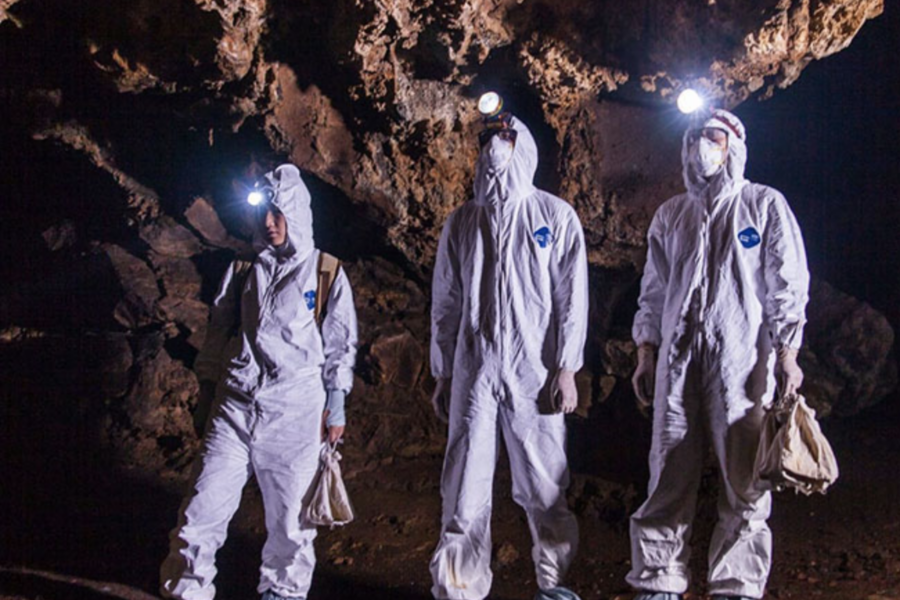Science Revised award to EcoHealth Alliance will no longer involve studies of hybrid coronaviruses.
Three years after then-President Donald Trump pressured the National Institutes of Health (NIH) to suspend a research grant to a U.S. group studying bat coronaviruses with partners in China, the agency has restarted the award.
The new 4-year grant is a stripped-down version of the original grant to the EcoHealth Alliance, a nonprofit research organization in New York City, providing $576,000 per year. That 2014 award included funding for controversial experiments that mixed parts of different bat viruses related to severe acute respiratory syndrome (SARS), the coronavirus that sparked a global outbreak in 2002–04, and included a subaward to the Wuhan Institute of Virology (WIV). The new award omits those studies, and also imposes extensive new accounting rules on EcoHealth, which drew criticism from government auditors for its bookkeeping practices. But EcoHealth’s embattled director, Peter Daszak, says his group is pleased: “Now we have the ability to finally get back to work,” he says.
After NIH axed the grant in April 2020, many scientists protested the move as political interference with scientific peer review. Now, they are welcoming the grant’s resumption. “It is long overdue. Unfortunately, the original cancellation reflects the ongoing partisan politics where first Trump and now many Republicans are attacking science unfairly,” says Nobel Prize winner Richard Roberts of New England Biolabs. In May 2020, he helped organize a letter from 77 Nobel laureates protesting the grant’s termination. (In July 2020, NIH changed its status to a suspension with new, unusual conditions.)
Grant number R01AI110964, which NIH renewed in 2019 with a subaward to WIV that totaled nearly $600,000 over 8 years, is probably the most scrutinized grant in the agency’s history. Trump called for its cancellation in April 2020 amid unsupported allegations that a lab leak at WIV started the COVID-19 pandemic. The project later drew concerns for experiments, conducted in virologist Shi Zhengli’s lab at WIV, in which researchers attached the spike protein of various wild bat coronaviruses to a different virus “backbone” in order to gauge the wild pathogens’ potential to infect human airway cells. Such experiments allow scientists to isolate the role of the spike protein and study coronaviruses that they can’t culture easily.
